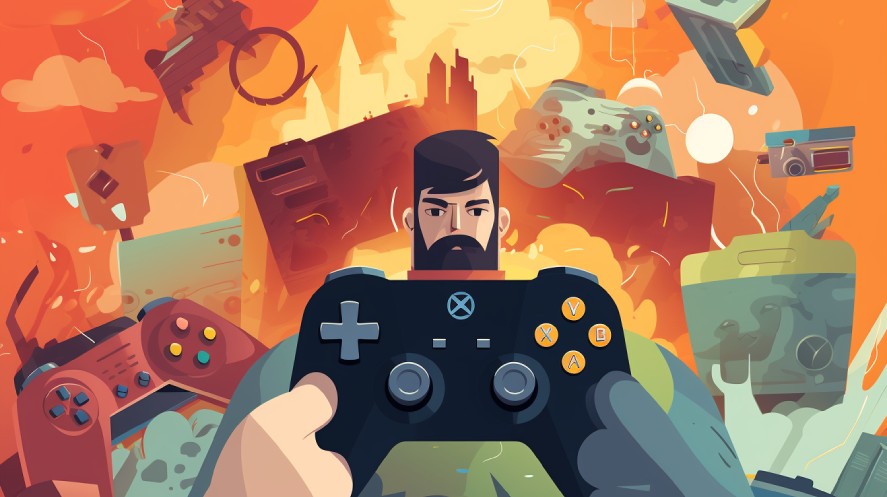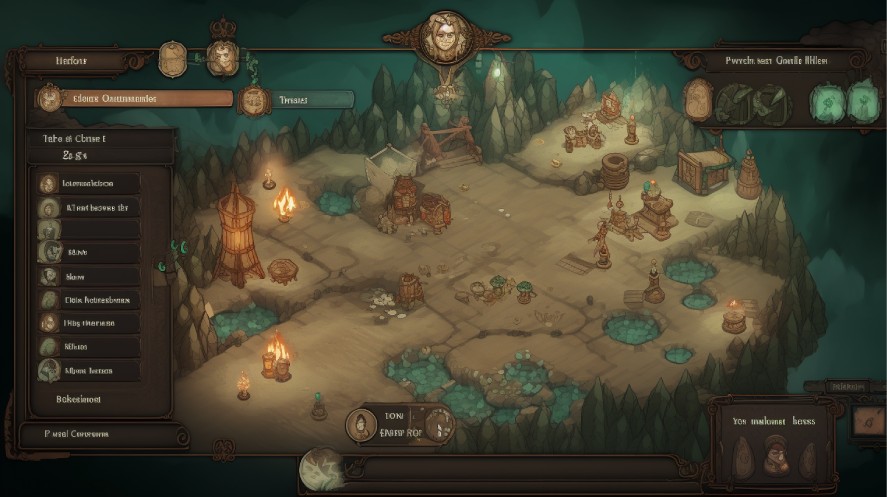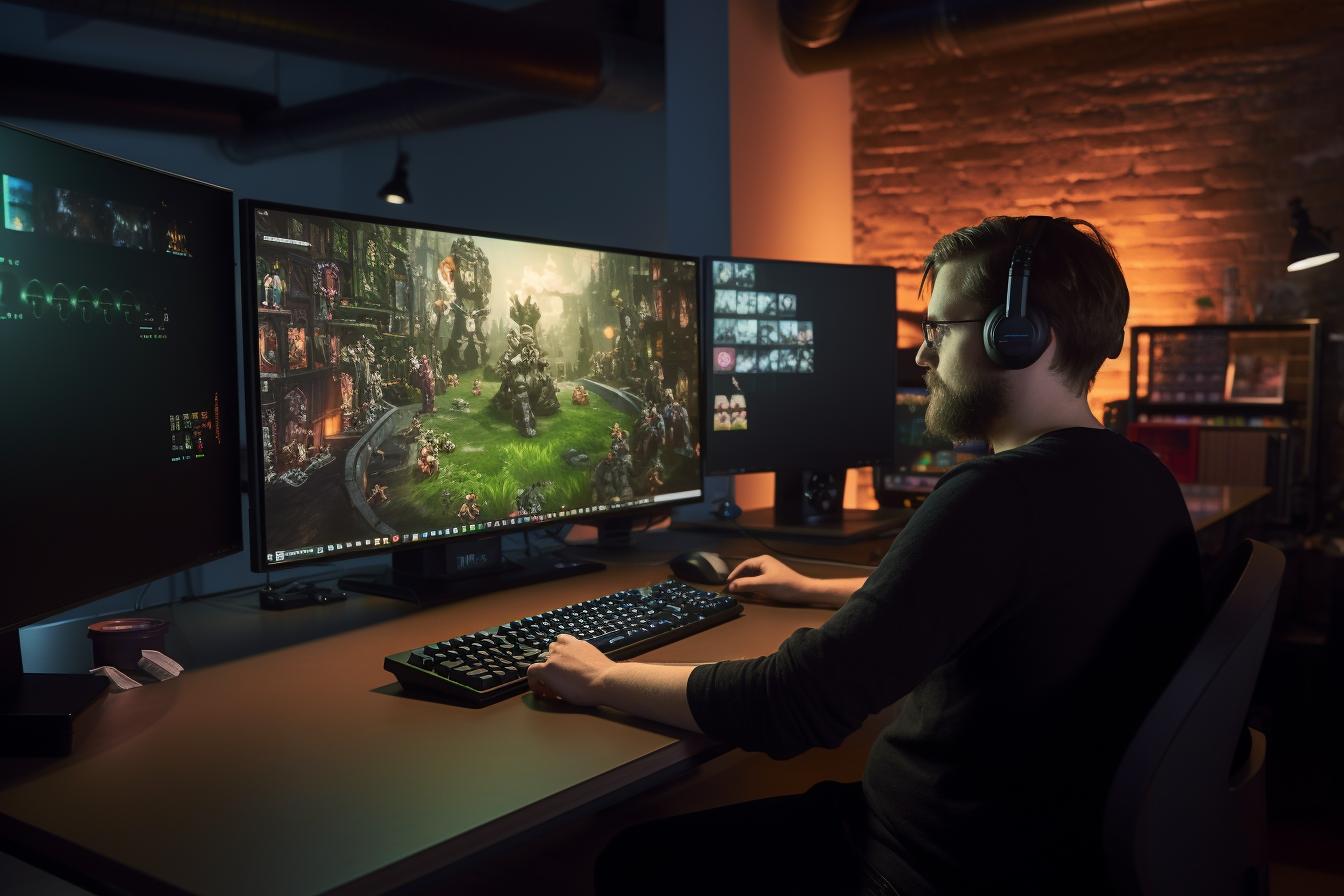In the dynamic and competitive world of game development, partnering with a publisher can significantly boost your chances of success.
This article aims to guide aspiring game indie game developers on how to break into game development for a publisher, providing valuable insights and practical tips to navigate the industry effectively.
Understanding the Gaming Industry
The video game industry is thriving, encompassing a diverse range of game developers, from indie game development studios to larger companies.

Game publishers play a vital role in this ecosystem, acting as mediators between developers and the market. They provide financial support, marketing expertise, and distribution networks, helping developers reach a wider audience and maximize their game potential.
The Importance of a Game Developer’s Portfolio
A strong portfolio is crucial for attracting game publishers and showcasing your skills and creativity. By curating an impressive collection of your best work, you demonstrate your abilities to potential partners.
Emphasize innovation in gaming and unique selling points (USPs) that set your games apart from the competition. Consider creating a game design portfolio website or using online platforms to showcase your projects and build a professional online presence.
The Process of Developing a Game for a Publisher
Breaking into the world of game development and partnering with a publisher can be an exciting journey for indie game developers. To increase your chances of working with a game publisher, following a well-structured approach is essential.

Here are detailed steps through the process:
1. Conceptualizing Your Game
First, you need to develop a unique and engaging video game concept that captures the attention of publishers. Take the time to conduct thorough research, analyze market trends, and identify gaps or opportunities.
Dive into video game design, brainstorming ideas that align with your target audience’s preferences and potential publishers’ interests. Validate your ideas by gathering feedback from peers, industry professionals, and potential players.
This alone will help ensure your game concept has strong market potential in the publisher’s eye.
2. Developing a Game Prototype
Creating a game prototype is an essential step in the development process.
Invest time and effort into building a polished prototype that effectively demonstrates the core mechanics and gameplay experience. Focus on creating a prototype that captures the essence of your game and highlights its unique selling points (USPs).
This will give publishers a tangible glimpse into the vision and potential of your game.
3. Creating a Pitch Deck
A pitch deck is a visual presentation that encapsulates your game’s concept, features, and potential. It should be engaging, concise, and visually appealing.
Make your pitch deck stand out by showcasing your game’s innovation, its potential for success, and why it appeals to the target audience. Include key elements such as an elevator pitch, gameplay footage, market analysis, target audience, game monetization strategy, and team information.
Craft a perfect game pitching that captivates game publishers and demonstrates your game’s marketability.
Before you go, check out this “Game Development Pitch Deck: A Must-Read for Game Developers” article for more pitch deck examples and gaming case studies.
4. Approaching a Publisher
Research and identify potential game publishers that align with your game’s genre, style, and target audience. Look for publishers who have a track record of working with indie game developers.
Then study their portfolio, previous game releases, and guidelines to ensure your pitch aligns with their publishing strategy. Be prepared to submit your pitch deck, prototype, and any supporting materials.
You should understand that pitching may involve multiple stages and feedback loops. So be patient and try to stand out from the rest.
5. Contract Negotiation
If a publisher shows interest in your game, negotiations will begin.
Carefully review the publisher’s contract terms and conditions, seeking legal advice if necessary. Negotiate for favorable royalties, marketing support, development funding, and intellectual property rights.
Ensure clarity on revenue sharing, milestone payments, and marketing obligations to protect your interests.
Best Practices for Working with a Publisher
Working with publishers is a collaborative journey that requires effective communication, professionalism, and a shared vision for success.

To ensure a fruitful partnership, consider the following best practices:
1. Establish Clear Communication with Publishers
Maintaining open and transparent communication with your publisher is essential.
Establish regular check-ins, whether through email, video conferences, or project management tools. Share updates on the game’s development progress, seek feedback, and address any concerns or challenges promptly.
Effective communication helps build trust and ensures that everyone is on the same page throughout the project.
2. Meet Deadlines and Deliver High-Quality Work
Adhering to deadlines is crucial in maintaining a positive relationship with your publisher.
Timely delivery of milestones and deliverables demonstrates professionalism and reliability. Strive to deliver high-quality work that meets or exceeds the publisher’s expectations.
Consistently meeting deadlines and delivering exceptional work builds credibility and fosters trust with your publisher.
3. Collaborate on Marketing Strategies
Work closely with your publisher to develop effective marketing strategies that align with the target audience and market trends. Share your insights and ideas, leveraging the publisher’s expertise and resources.
Collaborate on promotional campaigns, including social media, influencer partnerships, press releases, and community engagement. A joint effort in video game marketing increases the visibility and reach of your game.
4. Maintain Professionalism and Adaptability
Throughout your partnership, maintain a high level of professionalism and adaptability.
Be open to constructive feedback from your publisher and be willing to make necessary adjustments to improve the game’s quality. Show a proactive attitude in resolving conflicts or challenges that may arise during the development process.
A positive and adaptable approach fosters a productive working relationship.
5. Build Long-Term Relationships
While the current project is important, it’s crucial to view your partnership with the publisher as a long-term relationship. Nurture the connection beyond a single game and seek opportunities for future collaborations.
Developing a positive reputation within the industry can lead to further opportunities and referrals. Maintain professional networks, attend industry events, and stay engaged with the gaming community.
6. Seek Support and Share Success
Don’t hesitate to seek support from your publisher when needed. They have experience and game development resources that can help you overcome challenges and optimize your game’s potential.
Celebrate successes together and acknowledge the collective effort in achieving milestones. Sharing success stories strengthens the partnership and builds a positive rapport.
Remember, each publisher may have their own specific requirements and expectations. Be sure to familiarize yourself with their guidelines and adapt these best practices accordingly.
Conclusion
Breaking into game development for a publisher requires dedication, perseverance, and a solid understanding of the industry.
By building a compelling portfolio, developing unique game concepts, creating impressive prototypes, and mastering the art of pitching, you can increase your chances of securing a publishing deal.
Working with a publisher offers numerous benefits, including marketing expertise, financial support, and wider game distribution channels. Embrace the opportunities, stay resilient, and let your passion for game development shine!

